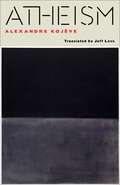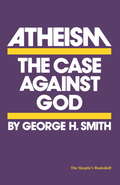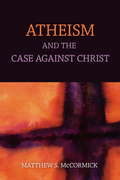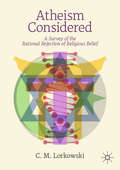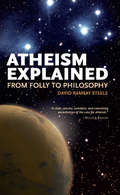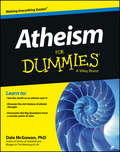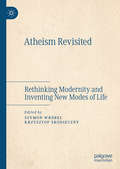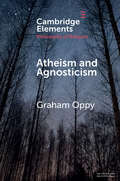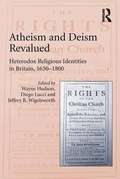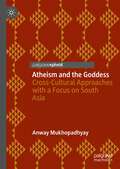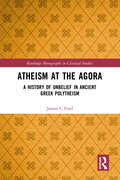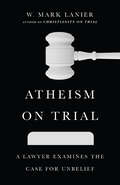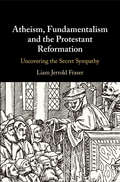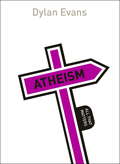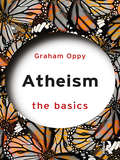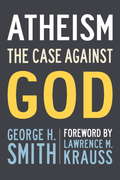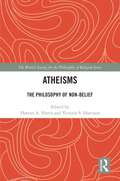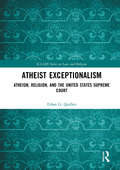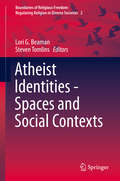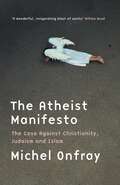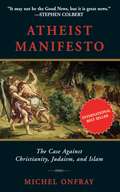- Table View
- List View
Atharv aur Mayalok: अथर्व और मायालोक
by Manish Pandey 'Rudra'अथर्व और मायालोक एक जादुई और रोमांचक उपन्यास है, जिसमें मुख्य पात्र अथर्व की यात्रा मायावी दुनिया में होती है। कहानी अथर्व के जीवन की कठिनाइयों से शुरू होती है, जिसमें वह अपने माता-पिता की खोज में लगा होता है। एक दिन उसे एक जादुई लॉकेट मिलता है, जिसके बाद उसकी ज़िंदगी पूरी तरह से बदल जाती है। वह मायावी शक्तियों, अद्भुत जीवों और अजीब घटनाओं से घिर जाता है। उसे पता चलता है कि उसकी नियति इस जादुई दुनिया से जुड़ी है। कहानी में मित्रता, साहस, और संघर्ष के तत्व प्रमुख हैं, जहां अथर्व को अपनी पहचान और उद्देश्य का पता लगाने के लिए कई चुनौतियों का सामना करना पड़ता है। अंततः, यह उपन्यास पाठकों को एक अनोखी और रहस्यमयी दुनिया में ले जाता है, जहां कल्पना की कोई सीमा नहीं होती।
Atheethawalokanaya - අතීතාවලෝකනය
by Anushi Thisara Kariyawasam - අනුෂී තිසාරා කාරියවසම්කාලයක් තිස්සේ අපේ අතීතය සොයා බැලීමෙන් අනතුරු ව රැස් කළ කරුණු උපයෝගී කොටගෙන කර්තෘ විසින් ඉරිදා දිවයින සියපත විශේෂ අතිරේකයට වරින් වර ලියන ලද ලිපිවලින් කොටසක් මෙම ග්රන්ථය සඳහා තෝරා ගෙන ඇත.
Atheism
by Alexandre KojèveOne of the twentieth century’s most brilliant and unconventional thinkers, Alexandre Kojève was a Russian émigré to France whose lectures on Hegel in the 1930s galvanized a generation of French intellectuals. Although Kojève wrote a great deal, he published very little in his lifetime, and so the ongoing rediscovery of his work continues to present new challenges to philosophy and political theory. Written in 1931 but left unfinished, Atheism is an erudite and open-ended exploration of profound questions of estrangement, death, suicide, and the infinite that demonstrates the range and the provocative power of Kojève’s thought.Ranging across Heidegger, Buddhism, Christianity, German idealism, Russian literature, and mathematics, Kojève advances a novel argument about freedom and authority. He investigates the possibility that there is not any vantage point or source of authority—including philosophy, science, or God—that is outside or beyond politics and the world as we experience it. The question becomes whether atheism—or theism—is even a meaningful position since both affirmation and denial of God’s existence imply a knowledge that seems clearly outside our capacities. Masterfully translated by Jeff Love, this book offers a striking new perspective on Kojève’s work and its implications for theism, atheism, politics, and freedom.
Atheism
by George H. Smith"Does a god exist? This question has undoubtedly been asked, in one form or another, since man has had the ability to communicate. . . Thousands of volumes have been written on the subject of a god, and the vast majority have answered the questions with a resounding 'Yes!' ""You are about to read a minority viewpoint."With this intriguing introduction, George H. Smith sets out to demolish what he considers the most widespread and destructive of all the myths devised by man - the concept of a supreme being. With painstaking scholarship and rigorous arguments, Mr. Smith examines, dissects, and refutes the myriad "proofs" offered by theists - the defenses of sophisticated, professional theologians, as well as the average religious layman. He explores the historical and psychological havoc wrought by religion in general - and concludes that religious belief cannot have any place in the life of modern, rational man."It is not my purpose to convert people to atheism . . . (but to) demonstrate that the belief in God is irrational to the point of absurdity. If a person wishes to continue believing in a god, that is his prerogative, but he can no longer excuse his belief in the name of reason and moral necessity."
Atheism And The Case Against Christ
by Matthew S. MccormickHundreds of millions of people believe that Jesus came back from the dead. This cogent, forcefully argued book presents a decidedly unpopular view --namely, that the central tenet of Christianity, the resurrection of Jesus, is false. The author asks a number of probing questions: Is the evidence about Jesus as it has been relayed to us over the centuries of sufficient quantity and quality to justify belief in the resurrection? How can we accept the resurrection but reject magic at the Salem witch trials? What light does contemporary research about human rationality from the fields of behavioral economics, empirical psychology, cognitive science, and philosophy shed on the resurrection and religious belief? Can we use contemporary research about the reliability of people's beliefs in the supernatural, miracles, and the paranormal to shed light on the origins of Christianity and other religions? Does it make sense that the all-powerful creator of the universe would employ miracles to achieve his ends? Can a Christian believe by faith alone and yet reasonably deny the supernatural claims of other religions? Do the arguments against Christianity support atheism? By carefully answering each of these questions, this book undermines Christianity and theism at their foundations; it gives us a powerful model for better critical reasoning; and it builds a compelling case for atheism. Without stooping to condescension or arrogance, the author offers persuasive arguments that are accessible, thoughtful, and new.
Atheism Considered: A Survey of the Rational Rejection of Religious Belief
by C.M. LorkowskiAtheism Considered is a systematic presentation of challenges to the existence of a higher power. Rather than engage in polemic against a religious worldview, C.M. Lorkowski charitably refutes the classical arguments for the existence of god, pointing out flaws in their underlying reasoning and highlighting difficulties inherent to revealed sources. In place of a theistic worldview, he argues for adopting a naturalistic one, highlighting naturalism’s capacity to explain world phenomena and contribute to the sciences. Lorkowski demonstrates that replacing theism with naturalism, contra popular assumptions, sacrifices nothing in terms of ethics or meaning. Instead, morality ultimately proves more important than religion and does not rely on it. Appropriate for classroom use, this book is meant to cultivate understanding, tolerance, and fruitful dialogue between believers and nonbelievers.
Atheism Explained
by David Ramsay SteeleAtheism Explained explores the claims made both for and against the existence of God. On the pro side: that the wonders of the world can only be explained by an intelligent creator; that the universe had to start somewhere; telepathy, out-of-body experiences, and other paranormal phenomena demonstrate the existence of a spirit world; and that those who experience God directly provide evidence as real as any physical finding. After disputing these arguments through calm, careful criticism, author David Ramsay Steele presents the reasons why God cannot exist: monstrous, appalling evils; the impossibility of omniscience; and the senseless concept that God is a thinking mind without a brain. He also explores controversial topics such as Intelligent Design, the power of prayer, religion without God, and whether a belief in God makes people happier and healthier. Steele's rational, easy-to-understand prose helps readers form their own conclusions about this eternally thorny topic.
Atheism For Dummies
by Dale McgowanThe easy way to understand atheism and secular philosophyFor people seeking a non-religious philosophy of life, as well as believers with atheist friends, Atheism For Dummies offers an intelligent exploration of the historical and moral case for atheism. Often wildly misunderstood, atheism is a secular approach to life based on the understanding that reality is an arrangement of physical matter, with no consideration of unverifiable spiritual forces.Atheism For Dummies offers a brief history of atheist philosophy and its evolution, explores it as a historical and cultural movement, covers important historical writings on the subject, and discusses the nature of ethics and morality in the absence of religion.A simple, yet intelligent exploration of an often misunderstood philosophyExplores the differences between explicit and implicit atheismA comprehensive, readable, and thoroughly unbiased resourceAs the number of atheists worldwide continues to grow, this book offers a broad understanding of the subject for those exploring atheism as an approach to living.
Atheism Revisited: Rethinking Modernity and Inventing New Modes of Life
by Szymon Wróbel Krzysztof SkoniecznyAtheism Revisited is a collection of essays that explore the multifaceted nature of atheism. Starting from the notion that today’s atheism is shaped by the defining processes of Modernity—such as secularization and the breakup of science, philosophy, and theology—the first part of the book undertakes a thorough scrutiny of Modern atheisms, from Spinoza and Hobbes to Marx and Nietzsche. The second part of the book seeks to draw practical conclusions from this scrutiny and answer the questions: what is the state of atheism today? What is the role of an atheist in a world affected by religious fundamentalisms? What should the relationship between atheists and religious people look like? The wide scope of the book allows readers to see atheism as a central concern of many intellectual movements, from Marxism and French Theory to post-secularism and the reevaluation of Modernity, and to understand atheism as a focal point of the most important contemporary philosophical debates.
Atheism and Agnosticism (Elements in the Philosophy of Religion)
by Graham OppyThis book is an elementary introduction to atheism and agnosticism. It begins with a careful characterisation of atheism and agnosticism, distinguishing them from many other things with which they are often conflated. After a brief discussion of the theoretical framework within which atheism and agnosticism are properly evaluated, it then turns to the sketching of cases for atheism and agnosticism. In both cases, the aim is not conviction, but rather advancement of understanding: the point of the cases is to make it intelligible why some take themselves to have compelling reason to adopt atheism or agnosticism.
Atheism and Deism Revalued: Heterodox Religious Identities in Britain, 1650-1800
by Wayne Hudson Diego LucciGiven the central role played by religion in early-modern Britain, it is perhaps surprising that historians have not always paid close attention to the shifting and nuanced subtleties of terms used in religious controversies. In this collection particular attention is focussed upon two of the most contentious of these terms: ’atheism’ and ’deism’, terms that have shaped significant parts of the scholarship on the Enlightenment. This volume argues that in the seventeenth and eighteenth century atheism and deism involved fine distinctions that have not always been preserved by later scholars. The original deployment and usage of these terms were often more complicated than much of the historical scholarship suggests. Indeed, in much of the literature static definitions are often taken for granted, resulting in depictions of the past constructed upon anachronistic assumptions. Offering reassessments of the historical figures most associated with ’atheism’ and ’deism’ in early modern Britain, this collection opens the subject up for debate and shows how the new historiography of deism changes our understanding of heterodox religious identities in Britain from 1650 to 1800. It problematises the older view that individuals were atheist or deists in a straightforward sense and instead explores the plurality and flexibility of religious identities during this period. Drawing on the most recent scholarship, the volume enriches the debate about heterodoxy, offering new perspectives on a range of prominent figures and providing an overview of major changes in the field.
Atheism and the Goddess: Cross-Cultural Approaches with a Focus on South Asia
by Anway MukhopadhyayThis book seeks to explore the complex modes of interface between religion, atheism, and the Goddess in multicultural contexts. While atheism has often been seen as an interrogation of and a battle against God, the gender dimension of this discourse has not been sufficiently negotiated. Is the fight against God also a fight against the Goddess? Or is there something common between the ideological thrust of the battle against God the “Father” in atheism and the interrogation of the Divine Father in thealogy? Can the Goddess be seen as an entity radically different from the imperious transcendental that the atheists find embodied in God the Father? Or, can the Goddess be seen as “transcendental” as well as immanent, and hence subjected to the same atheist denial of transcendence to which God is subjected in non-theistic or anti-theistic arguments? With this volume, Anway Mukhopadhyay embarks on a difficult project of epistemologically, ideologically and even politically renegotiating and reorienting some of the fundamental issues involved in the discussions of and debates over atheism.
Atheism at the Agora: A History of Unbelief in Ancient Greek Polytheism (Routledge Monographs in Classical Studies)
by James C FordThis fresh, comprehensive study of ancient Greek atheism aims to dismantle the current consensus that atheism was ‘unthinkable’ in ancient Greece, demonstrating instead that atheism was not only thinkable but inextricably embedded in the Greek religious environment. Through careful analysis of a wide range of source material provided in modern English translation, and drawing on philosophy, theology, sociology, and other disciplines, Ford unpicks a two and a half thousand-year history of marginalisation, clearing the way for a new analysis. He lays out in clear terms the nature and form of ancient Greek atheism as the ancient Greeks conceived of it, through a series of themes and lenses. Topics such as religious socialisation, the interaction of atheist philosophy and theology, identity formation through alterity, and the use of atheism in scapegoating are considered not only in broad terms, using a synthesis of modern scholarship to mark out an overview in line with modern consensus, but also by drawing on the unique perspective of ancient atheism Ford is able to provide innovative theories about a range of subjects. Atheism at the Agora is of interest to students and scholars in Classics, particularly Greek religion and culture, as well as those studying atheism in other historical and contemporary areas, religious studies, philosophy, and theology.
Atheism on Trial: A Lawyer Examines the Case for Unbelief
by W. Mark LanierIn the courtroom, lawyers depend on rules of evidence to make their arguments. A case is made by establishing certain facts from which proof can be determined. But what happens when the truth seems to be a matter of faith? Can the legal mind discern the validity of one's belief or unbelief? Nationally recognized trial lawyer Mark Lanier turns his analytical mind to the arguments for atheism and agnosticism. With critical thinking and precision of thought, he examines the rationales made for unbelief and assesses them on their own terms, finding points of strength and weakness in their logic and coherence. He considers whether atheistic frameworks give satisfactory and consistent explanatory answers for understanding human existence and the world around us. He cross-examines the strongest arguments of prominent atheists and also interrogates the questions of agnostics as to whether God is knowable. Through his evenhanded, levelheaded approach, Lanier challenges us all to decide for ourselves what we believe.
Atheism, Fundamentalism and the Protestant Reformation: Uncovering the Secret Sympathy
by Liam Jerrold FraserIn this study of new atheism and religious fundamentalism, this book advances two provocative - and surprising - arguments. Liam Jerrold Fraser argues that atheism and Protestant fundamentalism in Britain and America share a common historical origin in the English Reformation, and the crisis of authority inaugurated by the Reformers. This common origin generated two presuppositions crucial for both movements: a literalist understanding of scripture, and a disruptive understanding of divine activity in nature. Through an analysis of contemporary new atheist and Protestant fundamentalist texts, Fraser shows that these presuppositions continue to structure both groups, and support a range of shared biblical, scientific, and theological beliefs. Their common historical and intellectual structure ensures that new atheism and Protestant fundamentalism - while on the surface irreconcilably opposed - share a secret sympathy with one another, yet one which leaves them unstable, inconsistent, and unsustainable.
Atheism: All That Matters
by Dylan EvansAtheism is becoming increasingly popular and it sometimes feels that much of the western world is now post-religious. But now the initial charge of Richard Dawkins and the new atheists has past, what does atheism really mean? This is the question that Dylan Evans addresses in Atheism: All That Matters, providing a thoughtful and engaging atheist manifesto. What values can atheists share with believers?How can a belief that something doesn't exist still be a belief?Is modern atheism new or just a new form of an old system of values? Building on the work of atheist philosophers and psychologists, he shows how the history of atheist thought has developed and offers fresh ideas for how life has meaning from an atheist perspective. All That Matters about atheism. All That Matters books are a fast way to get right to the heart of key issues.
Atheism: All That Matters (All That Matters)
by Dylan EvansAtheism is becoming increasingly popular and it sometimes feels that much of the western world is now post-religious. But now the initial charge of Richard Dawkins and the new atheists has passed, what does atheism really mean? This is the question that Dylan Evans addresses in Atheism: All That Matters, providing a thoughtful and engaging atheist manifesto.What values can atheists share with believers? How can a belief that something doesn't exist still be a belief? Is modern atheism new or just a new form of an old system of values? Building on the work of atheist philosophers and psychologists, he shows how the history of atheist thought has developed and offers fresh ideas for how life has meaning from an atheist perspective.All That Matters about atheism. All That Matters books are a fast way to get right to the heart of key issues.
Atheism: The Basics (The Basics)
by Graham OppyAtheism: The Basics is a concise and engaging introduction to belief in the non-existence of deities. Atheism has long fascinated people but debate around this controversial position may seem daunting. In this lively and lucid book, Graham Oppy addresses the following important questions: • What does it mean to be an atheist? • What is the difference between atheism, agnosticism, theism and innocence? • How has atheism been distributed over time and place? • What does science tell us about atheism? • Are there good reasons to be an atheist? • Are there good reasons not to be an atheist? • What do we mean by ‘new atheism'? With a glossary of key terms and suggestions for further reading throughout, the book considers key philosophical arguments around atheism, making this an ideal starting point for anyone seeking a full introduction to the arguments between those who hold atheistic beliefs and those who do not.
Atheism: The Case Against God
by George H. Smith Lawrence M KraussGeorge H. Smith sets out to demolish what he considers the most widespread and destructive of all the myths devised by human beings - the concept of a supreme being. With painstaking scholarship and rigorous arguments, Mr. Smith examines, dissects, and refutes the myriad "proofs" offered by theists - sophisticated, professional theologians - as well as the average religious layman. He explores the historical and psychological havoc wrought by religion in general and concludes that religious belief cannot have any place in the life of modern, rational man."It is not my purpose to convert people to atheism . . . (but to) demonstrate that the belief in God is irrational to the point of absurdity. If a person wishes to continue believing in a god, that is his prerogative, but he can no longer excuse his belief in the name of reason and moral necessity."
Atheism: The Case against God
by George H. SmithDoes a god exist? This question has undoubtedly been asked, in one form or another, since man has had the ability to communicate. . . Thousands of volumes have been written on the subject of a god, and the vast majority have answered the questions with a resounding 'Yes!'You are about to read a minority viewpoint. With this intriguing introduction, George H. Smith sets out to demolish what he considers the most widespread and destructive of all the myths devised by man - the concept of a supreme being. With painstaking scholarship and rigorous arguments, Mr. Smith examines, dissects, and refutes the myriad proofs offered by theists - the defenses of sophisticated, professional theologians, as well as the average religious layman. He explores the historical and psychological havoc wrought by religion in general - and concludes that religious belief cannot have any place in the life of modern, rational man. It is not my purpose to convert people to atheism . . . (but to) demonstrate that the belief in God is irrational to the point of absurdity. If a person wishes to continue believing in a god, that is his prerogative, but he can no longer excuse his belief in the name of reason and moral necessity. . . . welcome, hard-hitting. -Publishers Weekly
Atheisms: The Philosophy of Non-Belief (The British Society for the Philosophy of Religion Series)
by Victoria S. Harrison Harriet A. HarrisQuestions about how to negotiate belief and non-belief in social and public spheres are attracting an increasing amount of attention from academics in a range of disciplines, and from concerned members of the public. This volume addresses the emergence of ‘new atheism’ and the developing ‘spiritual but not religious’ phenomenon. Avoiding simplistic accounts of atheism, and of religious belief, it provides readers with insight into a wide range of nuances within theism and atheism, as well as spiritual practice and faith. The chapters by an international panel of contributors focus on topics such as: a typology or cartography of atheisms and agnosticism; contrasting types of atheism within Christianity and Buddhism; questions about cognitive and doxastic stances in atheisms; theist rejections of and atheist embracing of ‘God’; and atheist aesthetics. Reaching beyond the Christian tradition, the book will be of particular interest to scholars of the philosophy of religion, as well as religious studies and theology more generally.
Atheist Exceptionalism: Atheism, Religion, and the United States Supreme Court (ICLARS Series on Law and Religion)
by Ethan G. QuillenDue to its Constitution, and particularly to that Constitution’s First Amendment, the relationship between religion and politics in the United States is rather unusual. This is especially the case concerning the manner with which religious terminology is defined via the discourse adopted by the United States Supreme Court, and the larger American judicial system. Focusing on the religious term of Atheism, this book presents both the discourse itself, in the form of case decisions, as well as an analysis of that discourse. The work thus provides an essential introduction and discussion of both Atheism as a concept and the influence that judicial decisions have on the way we perceive the meaning of religious terminology in a national context. As a singular source on the Supreme, Circuit, and District Court cases concerning Atheism and its judicial definition, the book offers convenient access to this discourse for researchers and students. The discursive analysis further provides an original theoretical insight into how the term ‘Atheism’ has been judicially defined. As such, it will be a valuable resource for scholars of religion and law, as well as those interested in the definition and study of Atheism.
Atheist Identities - Spaces and Social Contexts (Boundaries of Religious Freedom: Regulating Religion in Diverse Societies #2)
by Lori G. Beaman Steven TomlinsThe essays in this book not only examine the variety of atheist expression and experience in the Western context, they also explore how local, national and international settings may contribute to the shaping of atheist identities. By addressing identity at these different levels, the book explores how individuals construct their own atheist--or non-religious--identity, how they construct community and how identity factors into atheist interaction at the social or institutional levels. The book offers an interdisciplinary comparative approach to the analysis of issues relating to atheism, such as demography, community engagement, gender politics, stigmatism and legal action. It covers such themes as: secularization; the social context of atheism in various Western countries; the shifting of atheist identities based on different cultural and national contexts; the role of atheism in multicultural settings; how the framework of "reasonable accommodation" applies to atheism; interactions and relationships between atheism and religion and how atheism is represented for political and legal purposes. Featuring contributions by international scholars at the cutting edge of atheism studies, this volume offers unique insights into the relationship between atheism and identity. It will serve as a useful resource for academics, journalists, policy makers and general readers interested in secular and religious studies, identity construction and identity politics as well as atheism in general.
Atheist Manifesto: The Case Against Christianity, Judaism and Islam
by ONFRAY, MICHELNot since Nietzsche has a work so groundbreaking and explosive appeared, to question the role of the world's three major monotheistic religions. If Nietzsche proclaimed the death of God, French philosopher Michel Onfray starts from the premise that not only is God still very much alive but increasingly controlled by fundamentalists who pose a danger to the human race. Documenting the ravages from religious intolerance over the centuries, Onfray makes a strong case against the three religions for their obsession with purity and their contempt for reason and intelligence, individual freedom, desire and the human body, sexuality and pleasure, and for women in general. In their place, all three demand faith and belief, obedience and submission, extol the "next life" to the detriment of the here and now. Tightly argued, this is a work that is sure to stir debate on the role of religion in Australian society-and politics.
Atheist Manifesto: The Case Against Christianity, Judaism, and Islam
by Michel OnfrayThis hugely controversial work demonstrates convincingly how the world's three major monotheistic religions--Christianity, Judaism, and Islam--have attempted to suppress knowledge, science, pleasure, and desire, condemning nonbelievers often to death. Not since Nietzsche has a work so groundbreaking and explosive questioned the role of the world's three major monotheistic religions. If Nietzsche proclaimed the death of God, Onfray insists that not only is God still very much alive but also increasingly controlled by fundamentalists who pose a danger to the nature of human morality. Documenting the ravages of religious intolerance over the centuries, the author makes a strong case against the three religions for their obsession with purity and their contempt for reason and intelligence, individual freedom, desire, and the human body, as well as their disdain for women, sexuality, and pleasure. In their place, all three demand faith and belief, obedience and submission, extolling the "next life" to the detriment of the here and now. Tightly argued, this is a work that is sure to stir debate on the role of religion in American society--and politics.

